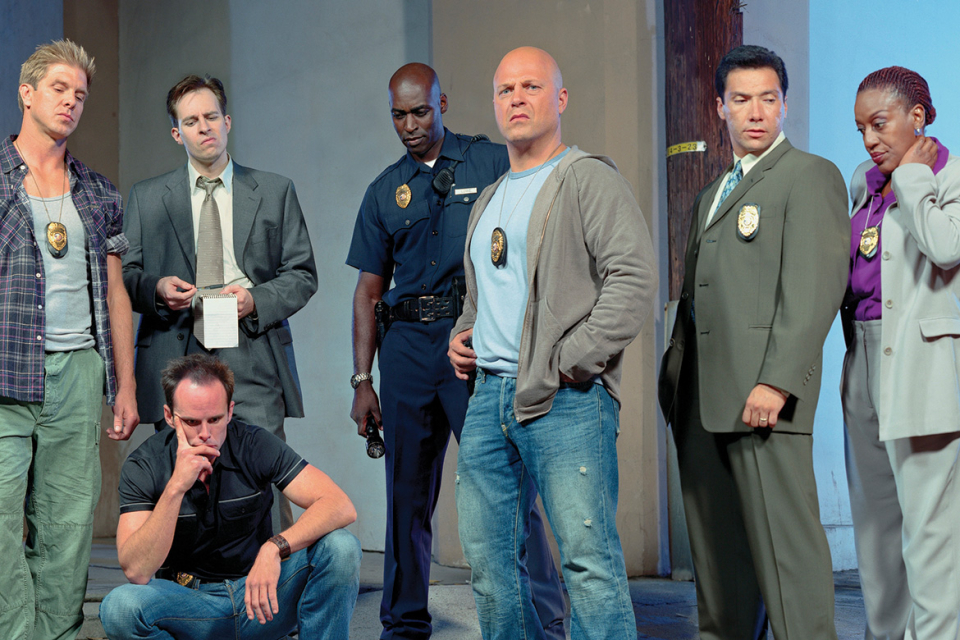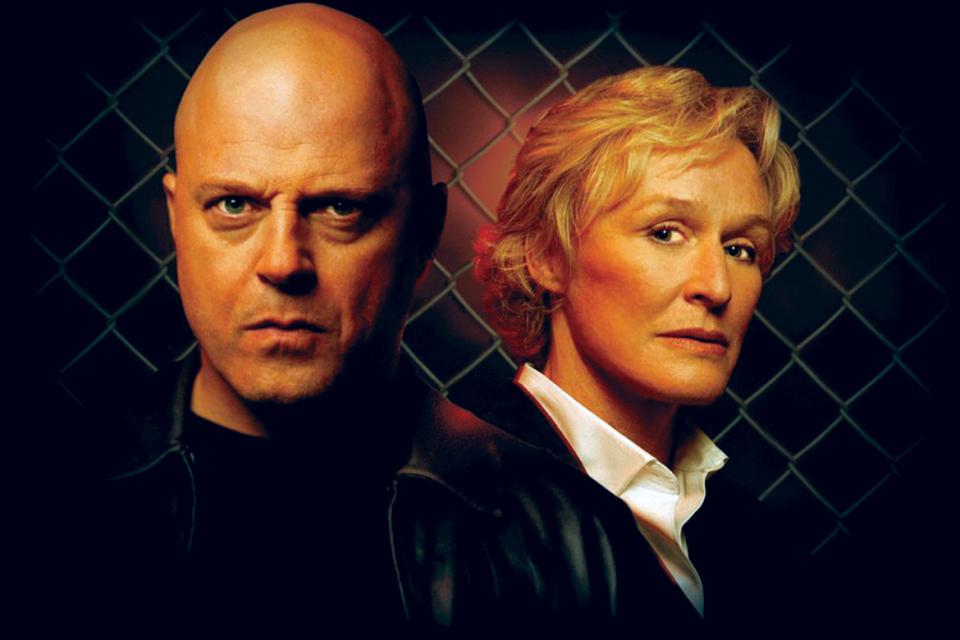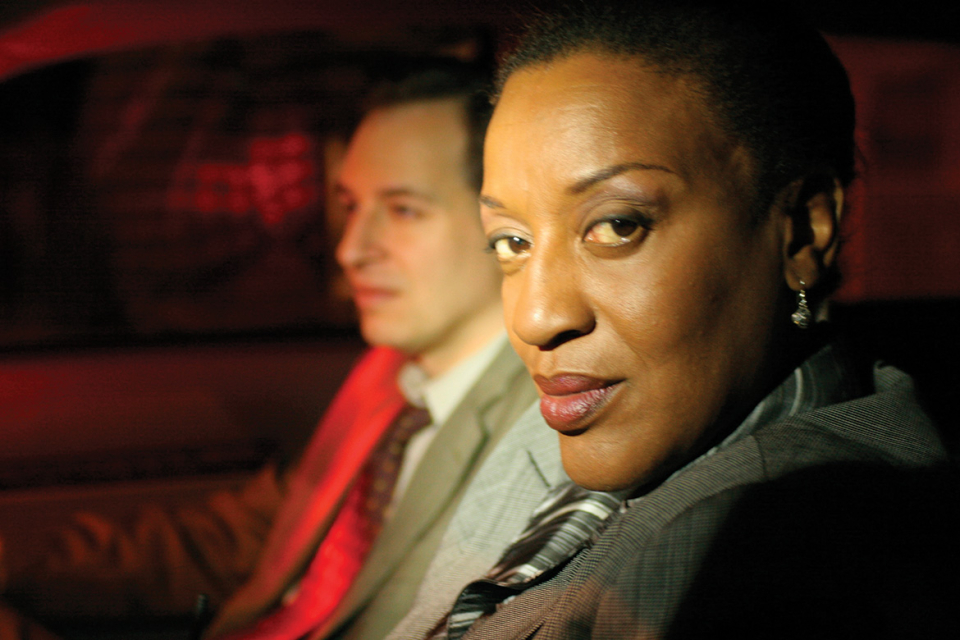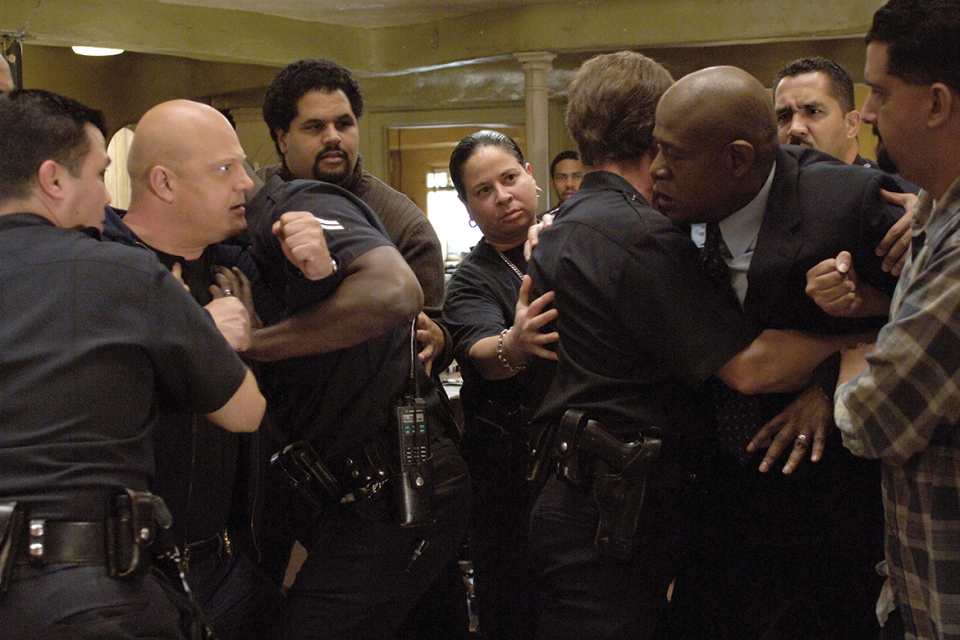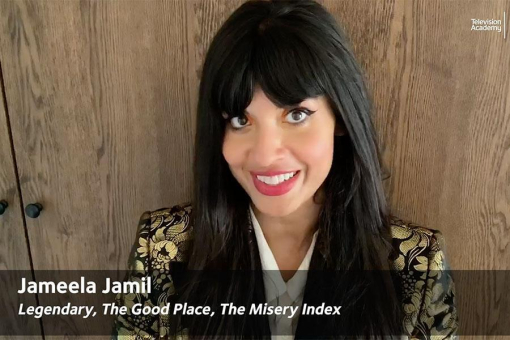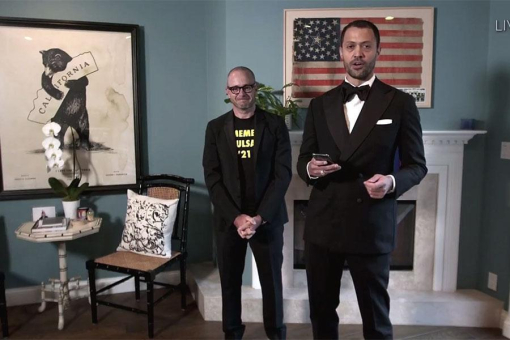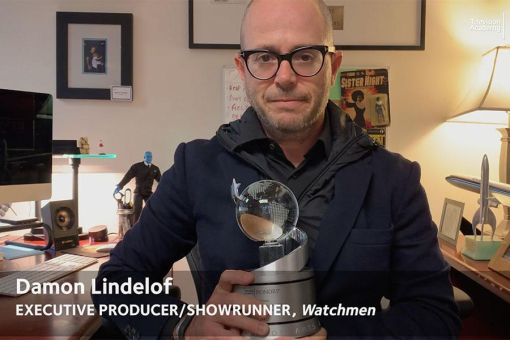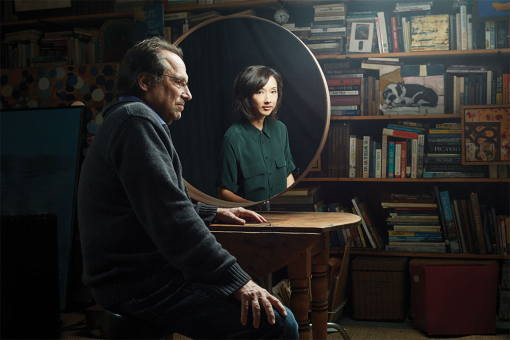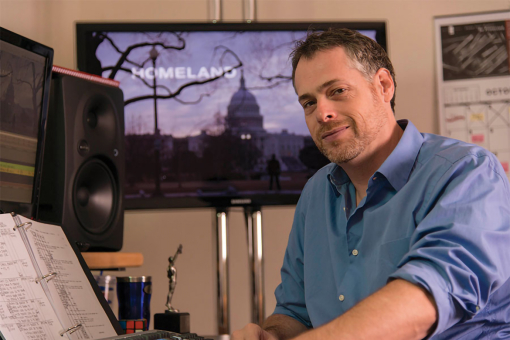The first episode of The Shield exploded onto television screens on March 12, 2002, at ten p.m. By the end of the hour, more than five million viewers had tuned in and found an antihero worth rooting for.
The series centered on Detective Vic Mackey — brutal cop and loving dad — played by Michael Chiklis (who won the show's only Emmy, for outstanding lead actor in a drama series). After a shocking twist at the end of the first episode (explained in the story below), the remainder of the thrilling debut season dealt with a desperate coverup by corrupt cops.
With a stellar supporting cast including CCH Pounder, Walton Goggins, Benito Martinez and Glenn Close — whose attention-getting arc as Captain Monica Rawling culminated in a lead actress Emmy nomination and her own show on FX (Damages, 2007–2012) — The Shield's seven season run was adored by fans and critics alike. The series also played a major role in changing the perception of basic cable and ushering in the modern Golden Age of television.
Viewers in 2008 were broken up over the imminent departure of the beloved series. Among the fans transfixed by The Shield's final season was Damon Lindelof, who, at the time of writing the following essay, was serving as cocreator–executive producer of ABC's Lost. The attraction of the series, he explains, lies in the courage of Shawn Ryan, who broke a cardinal rule of television: He created a dirty cop and compelled viewers to like him.
I grew up in front of a television. Seriously. I would watch at least six to eight hours a day. And I've seen everything. Twice. Even stuff I hated. Make whatever judgments you will about my parents for allowing this to happen (in their defense, they occasionally left me food and changed my litter box), but at the least everything seems to have worked out in the end.
I offer this only by way of establishing grounds for a certain degree of expertise when it comes to the rules of television storytelling. There is no handbook, per se, but there are certain inalienable commandments that are never broken. And while there is always room to bend these rules, one can be certain that lawyers will always determine the guilty party (even if they lose the case), doctors will always save their patient (unless the death of said patient allows them to begin an arc of substance abuse) and cops will always find out whodunit (though they sometimes choose to let the perp walk because the vic had it coming).
These rules exist for a reason. There is comfort in them. Safety. And audiences like to feel safe. Hell, we all like to feel safe.
It was probably The Sopranos that first took a stab (I won't say "no pun intended" because people who do are trying to indicate that they were just inadvertently clever, and I am neither inadvertent nor clever) at challenging these unwritten rules by presenting an essentially amoral character who was capable of horrific things as its protagonist. Tony, in fact, was a mobster. Yes, we were asked to sympathize with him, but in truth, how shocked could we really be with the antics of someone whose job it was to threaten, bribe, dismember, embezzle and suffocate Christopher? Okay. The last one wasn't his job, but he sure seemed to enjoy doing it, no? The point is, the rules were not broken here. Tony Soprano acted as a mobster acts. The subject matter was daring. The show was executed flawlessly. And yes, damn it, it was brilliant.
It did not, however, break the rules.
Which brings us to the unapologetic masterpiece that is The Shield.
In one stunning moment in the final moments of its pilot episode, The Shield broke the most significant rule of television storytelling. If I have to tell you how it accomplished this, then you've never seen The Shield, and I have no choice but to respectfully ask you to beat yourself about the face and head with the magazine you now hold in your hands. If you have seen it, then you knew deep in your bones that when Vic pulled that trigger and blasted Terry Crowley into oblivion, the face of television was forever changed.
Because Vic Mackey was a cop. And yet he was also a murderer. A cold-blooded murderer who acted only out of self-interest and a fear that his previous criminal activities would come to light if he did not execute a fellow police officer. And while we've seen dirty cops on TV many, many, many times, we have never been asked to like one.
There are so many sycophantic things I can say about The Shield as it rides off into the sunset. The power of the writing. The fact that creator–executive producer Shawn Ryan stayed on the show every step of the way when it is the nature of the business to farm the day-to-day management of the creative vision to others. The genius of its casting — from Michael Chiklis's unflinching central performance to the unparalleled accessibility of Jay Karnes's Wagenbach, my personal favorite. The man strangled a cat to death. Seriously. A cat. To death. All of these things make The Shield worthy of its ascendance into the pantheon of the greatest television shows ever produced.
But at the end of the day, as a writer and producer of television myself, I'll leave the commendations to the critics and take this opportunity to thank The Shield.
I'd like to thank every member of the incredible cast and crew behind it, not to mention the mavericks at FX who were either willing or trying to get fired when they put it on the air. So here goes:
Thank you, Shield, on behalf of all of the shows that have come in your wake, for doing it first. For allowing us to write fairly nasty people and still ask audiences to like them. Thank you for ending the show before it got stale. For never apologizing. And yes. Thank you for Lemonhead.
But most of all, thank you for not just breaking the rules, but shattering them. Busting them up Humpty-Dumpty style so that they could never be put back together again.
We will miss you.
This article originally appeared in emmy magazine issue #5, 2008, under the title, "Vic, Vice and Virtue."

